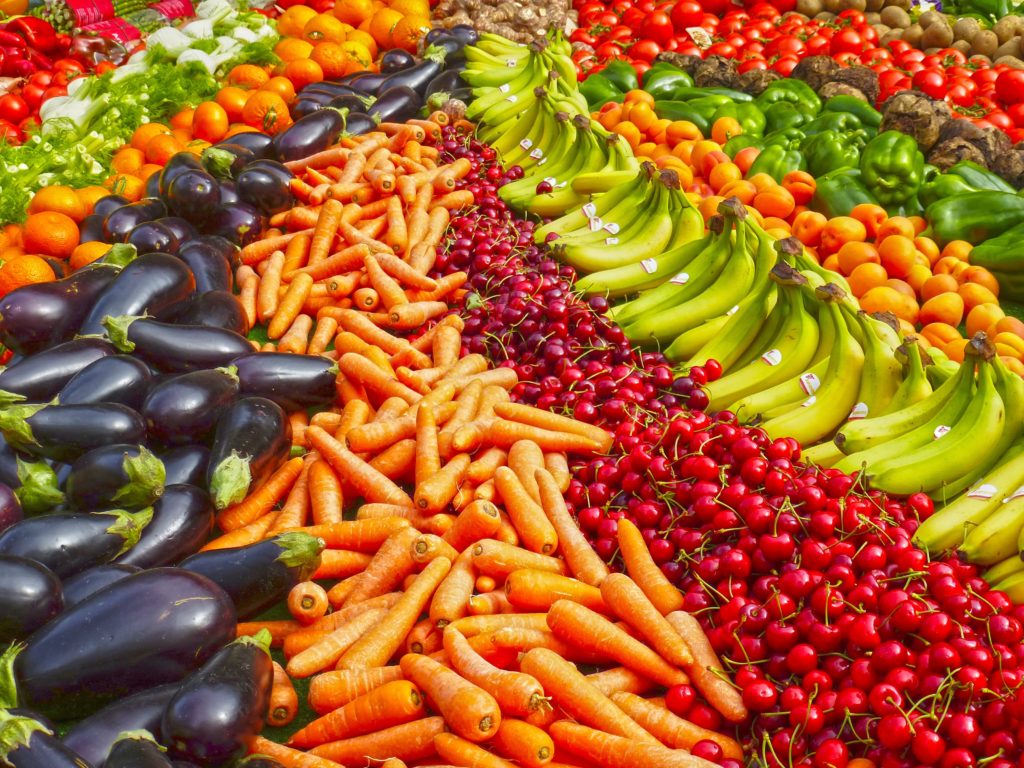Remember when you couldn’t leave the table until you had your vegetables? There is no debating that fruits and vegetables are good for you! With so many ways to cook them, how do you know what’s the best way to have them.
Fresh? Canned? or Frozen?
Now before we dive into which version of produce is better than the other, let’s just pat ourselves on the back for eating vegetables in the first place! Any type of produce is better than none.
There are benefits to each, so let’s dig into why you might choose one of these over the other:
Fresh Produce:
Thinking about fresh produce, you’re probably assuming that this is the best choice because it’s fresh!
That makes sense, of course, because when you’re looking at a ripe banana, that’s food in its most “natural” form. But did you know that the nutritional content of a fruit or vegetable is the highest at the time of harvest and goes down from there?
So, if a food has been harvested at peak ripeness, those nutrients will be greater. However, that’s not always the case with some farmers. Some produce is harvested ‘immaturely’ so that it can withstand the transit time to our grocery stores or the rigors of being packed and shipped, which can affect its nutrient content.
There are a number of factors that we as consumers do not have any control over that contribute to how nutrient filled our vegetables are:
- Time the food was harvested. Was it at peak ripeness or outside of that time?
- Was it grown in nutrient rich soil?
- Was any damage during harvest?
- How were the weather conditions during the growing season?
- The amount of time that has passed since the food was harvested.
- Storage and shipping conditions like humidity, temperature, oxygen, and UV lighting
The cooking method used also plays a significant role in how much nutrients there are in the vegetables. The more heat, moisture loss, and time cooked, the greater loss of nutrients from the fresh produce. However, some nutrients can be increased through the cooking process like asparagus, broccoli, and mushrooms. Let’s be clear though, nutrient loss because of cooking does not make it a bad choice when it comes to preparing produce for meals!
Sometimes we forget the importance of having vegetables in our diet. Raw, cooked, or frozen – eating produce in any of these forms has so many benefits for our body!
Canned Produce:
When it comes to canned produce, the nutrition level depends on when the produce was harvested. This is why it is very important to can produce that is at its peak harvest level, ensuring we secure the most nutrients in our canned produce as possible.
The process of canning (at home or commercial) exposes product to high temperatures which causes some nutrients to be degraded and/or cause a leaching from the produce into the surrounding liquids.
For example, when you boil carrots, some of the nutrients leave the carrot and enter the water it was boiled in. However, that does not mean that they necessarily disappear. Another instance is that canned tomatoes are often consumed with the liquids, so you’d actually be consuming those nutrients that leached out as liquid during the initial canning process.
Frozen Produce:
Just like with fresh and canned produce, the nutritional content of frozen produce starts with the nutrient content BEFORE it was frozen. So, picking at peak harvest and then freezing will ensure the most nutrients.
Before the process of freezing begins, blanching takes place. Blanching is the process of boiling fresh produce for a short amount of time after which the produce is submerged into ice water. By using this blanching method before freezing fruits and vegetables, nutrient loss is less than with canning.
The key to preserving the nutrients when freezing them, is to keep the blanching process short. As long as the frozen produce is kept frozen, there will be limited nutrient loss. But once thawing begins or the frozen produce is cooked, nutrient loss can occur.
So, if you thaw veggies and lose the juice, you will lose some of the nutrients. And if you cook the veggies, you can lose nutrients, just like the case of cooking canned or fresh vegetables.
One easy way to get around this loss is if you blend frozen fruit in a smoothie, ensuring you’ll keep more of those vital nutrients!
What can you take away from all of this?
Frozen and canned fruits and veggies provide a convenient and quick way to store produce and make them a quick add to any meal as a side or as an ingredient. However, there are many factors that impact the nutritional content of your produce. At the end of the day, simply eating fruits and vegetables, no matter the form, on a daily basis is the best option. Whether you want fresh, frozen, or canned is up to you. Let’s just eat more of them!
At CoreLife we pride ourselves on working hand in hand with our patients to educate and empower with the healthy food practices, habits, and tools. We guide our patients to choose foods that fit into their lifestyles, budget, and personal preferences. Everyone is unique which is why we don’t provide a one size fits all meal plan. If you are interested in learning more about how CoreLife can help you make a healthy change in your life, visit our Contact Us page and sign up for a complimentary consultation at a CoreLife location near you!
